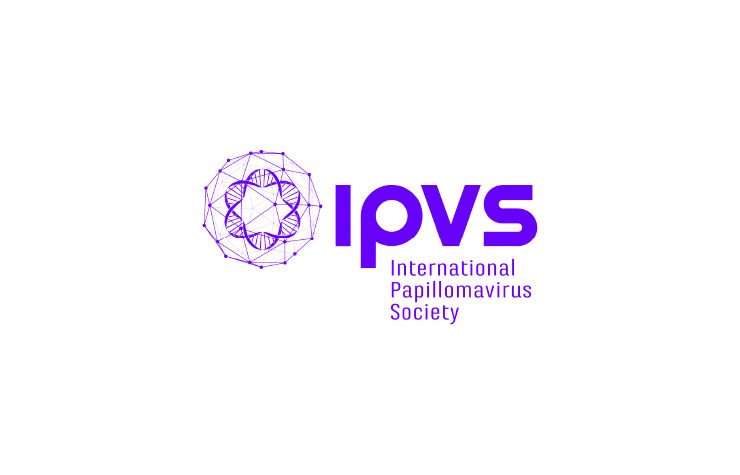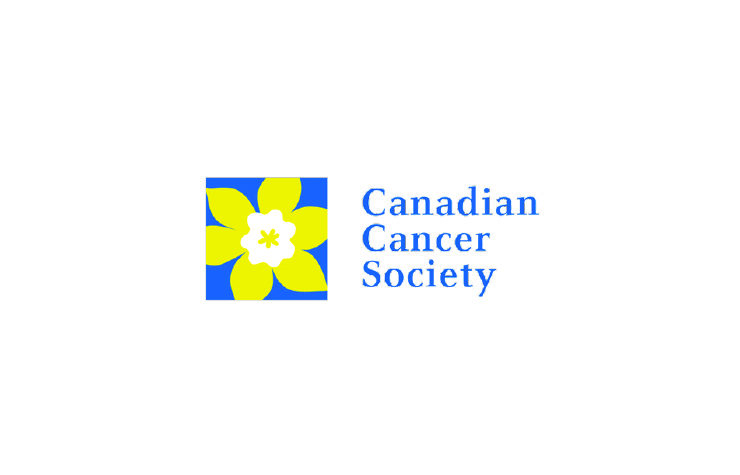What You Need to Know About The Human Papillomavirus (HPV)
What Is HPV?
The human papillomavirus, or HPV, is one of the most common sexually transmitted infections (STIs), in Canada and around the world. At least 70% of sexually active women and men will have at least one HPV infection in their lifetime, and approximately 3 to 9 million Canadians are infected with HPV.
Cervical cancer is almost exclusively caused by HPV. In Canada, about 1,500 women are diagnosed each year with cervical cancer, and 400 die annually from this type of cancer.
How Is HPV Transmitted?
HPV infection occurs when the virus enters your body through a cut, abrasion, or small tear in the outer layer of your skin. The HPV virus can infect anyone who has ever had a sexual encounter, even without penetration. The most common transmission is by skin-to-skin contact with the penis, scrotum, vagina, vulva, or anus of an infected person. Kissing or touching a partner’s genitals with the mouth can also transmit the HPV virus. In rare cases, a mother with an HPV infection may transmit the virus to her infant during delivery. This exposure may cause HPV infection in the baby’s genitals or upper respiratory system.
Is HPV Preventable?
HPV infection is preventable, mostly with the help of vaccination. In fact, the Society of Gynecologic Oncology of Canada recommends universal vaccination in Canada. All Appletree clinics carry the HPV vaccine.
Steps You Can Take To Protect Yourself From HPV
For Women
Use a Condom
Using a condom is not a guarantee for complete protection against HPV, because it only protects the area it covers. HPV can still be contracted through skin-to-skin contact beyond the area the condom is covering. That said, using a condom is a great way to reduce your risk of HPV infection, not to mention an excellent way to protect against other sexually transmitted infections.
Have Regular Pap Tests
Your Pap test helps screen for cervical cancer, the same way a mammogram screens for breast cancer. A Pap test is a simple screening method that detects cell changes in the cervix. Regular Pap tests are the best way to find abnormal cervical cells early and treat them before they develop into cervical cancer. The majority of abnormal Pap tests are caused by HPV. Pap tests should be performed routinely, even after vaccination.
Stop Smoking
Women who smoke are about twice as likely as non-smokers to get cervical cancer. In fact, smoking lowers the immune system and makes it less effective in fighting against HPV infections. It is also a factor in the development of various cancers, as well as genital warts.
HPV Vaccination
Vaccination can provide effective protection against the 9 HPV types that cause about 90% of cervical cancer cases and the 2 HPV types that cause over 90% of genital warts. GARDASIL®9 is an HPV vaccine that can be administered in men and women 9–45 years of age.
If you’re already infected with the virus, it’s NOT too late to be vaccinated. Even if you may have been infected with one type of HPV, vaccination can still help protect you from other types of the virus contained in the vaccine. The vaccine cannot treat an existing HPV infection, however.
Some HPV types will clear up on their own but some can cause cancers like cervical, vaginal, vulvar and anal cancers. Not to mention genital warts.
For Men
Use a Condom
Just remember that using a condom is not a guarantee for complete protection against HPV, because condoms only protect the area they cover. HPV can still be contracted through skin-to-skin contact beyond the area the condom is covering. That said, using a condom is a great way to reduce your risk of HPV infection, not to mention an excellent way to protect against other sexually transmitted infections.
Get Routine Health Exams
Although Pap tests are only available for women, you can be examined by your healthcare professional for genital warts caused by HPV and for signs of cancers of the penis, anus, mouth and throat. Both men and women should visit a healthcare professional for regular health exams if they think they are at risk of contracting HPV.
Stop Smoking
Smoking lowers the immune system and makes it less effective in fighting against HPV infections. It is also a factor in the development of various cancers, as well as genital warts. Good enough reason to quit, no?
Consider Getting Vaccinated
HPV vaccination is NOT just for women. You can get the virus at any point in your life while sexually active. Vaccination helps prevent infection with the HPV types that cause most genital warts and HPV-related cancers. Some HPV types will clear up on their own but some can cause cancers like anal cancer. Not to mention, genital warts. HPV, vaccination can still help protect you from other types of the virus contained in the vaccine. The vaccine cannot treat an existing HPV infection, however.
For Parents
You can talk to your child about how to help prevent HPV and lower their risk of developing the HPV virus and HPV-related diseases in their future.
Consider Having Your Child Vaccinated
Your child can get the virus at any point in his or her life while sexually active – which is why getting protected early on in life is recommended. Vaccination helps prevent infection with the HPV types that cause most genital warts and HPV-related cancers.
If your child is already infected with the virus, it’s NOT too late to be vaccinated. Even if they have been infected with one type of HPV, vaccination can still help protect your child from other types of the virus contained in the vaccine. The vaccine cannot treat an existing HPV infection, however.
You can also encourage your child to:
Use a Condom
Just remind them that using a condom is not a guarantee for complete protection against HPV, because condoms only protect the area they cover. HPV can still be contracted through skin-to-skin contact beyond the area the condom is covering. That said, using a condom is a great way to reduce your child’s risk of HPV infection, not to mention an excellent way to protect against other sexually transmitted infections.
For young women: get regular Pap tests.
Scheduling regular Pap tests for your daughter gives her the chance to get treated early if she does contract HPV.
For young men: schedule regular health exams.
Scheduling routine health exams for your son is a good opportunity for him to be checked by his healthcare professional for any signs of genital warts.
Delay having sex.
The best way to prevent HPV is to not have sex at all.
All it takes is 1 infected partner for your child to be infected.
HPV Vaccination
Who Should Be Vaccinated?
HPV vaccination is recommended for Men and Women ages 9 to 45 years of age to reduce their risk of contracting HPV and the 6 types of cancers that can develop from the virus. In Canada, about one-third of HPV-related cancers occur in males.
-
- HPV mouth and throat cancers increased 56% in males and 17% in females between 1992 and 2012. These cancers represent about one-third of all HPV cancers in Canada.
- Basically, as per recommendations, anyone who is sexually active could benefit from the vaccine.
How Many Shots Are Needed?
![]()
HPV prevention consists of a series of 3 shots. Depending on the vaccine chosen, the schedule is either 0, 1, and 6 months, or 0, 2, and 6 months. You will be booked an appointment to receive your second and third dose so that you receive reminders to come in to complete the vaccination series.
HPV Vaccination at Appletree
What to Expect During Your Appointment
The physician will discuss the risks and benefits of the vaccine with you. The vaccine will be administered and you will be asked to wait in the clinic for 15 minutes before leaving, to ensure that no adverse reaction occurs. Payment for the vaccine will be made each time the vaccine is administered.
After Your Appointment
Book your appointment(s) for your two follow up vaccines, to complete the series. Sign up for your secure Patient Portal so that you can access your Vaccination Record, and manage your future appointments.
Service Cost
Private
$288 + taxes
Private
$288 + taxes
If you do not have OHIP coverage, you will be required to pay for the visit and the service.
HPV visit & vaccination pricing:
Visit Fee: $77
Vaccine + injection: $205
Total $282
How Can I Access This Service?
In-Clinic
This service is available at select Appletree Medical Centres. Appointments are required.
How to Book


Frequently Asked Questions
Do I need a referral?
No. If you are interested in being vaccinated against HPV, no referral is necessary. Come in to any Appletree Medical Centres to discuss the HPV vaccine with the physician.
Are HPV Vaccines safe?
Yes, hundreds of millions of doses of HPV vaccines have been administered to patients around the world, and many large studies have shown that the vaccine is both safe and effective. Minor reactions such as redness or swelling at the injection site, soreness in the arm, and mild headaches and fever have been known to occur. If you have concerns, discuss them with your doctor.
Serious side effects can occur in very rare cases, however, the benefits to receiving the vaccine far outweigh the risks of serious side effects.
Do women still need Pap tests if they have been vaccinated?
Yes, all women over the age of 21 who are sexually active should receive a screening Pap test every three years.
Is the vaccine covered by my provincial health insurance?
HPV vaccination is provided by Public Health to school age children in Grade 7. For those in their late teens and adulthood, the vaccine is not publicly funded. An itemized receipt will be provided at the time of purchase that can be submitted to your private health insurance plan for reimbursement.
How much does the vaccine cost?
Gardasil 9 – $195/dose
Cervarix – $130/dose
Learn More About HPV

IPS (International Papillomavirus Society)
The International Papillomavirus Society (IPVS) promotes the worldwide exchange of ideas & knowledge and research materials concerned with human and animal papillomaviruses and their associated diseases.
IPS's Website
Canadian Cancer Society
The Canadian Cancer Society is a national, community-based organization of staff and volunteers whose mission is the eradication of cancer and the enhancement of the quality of life of people living with cancer.
Canadian Cancer Society's Website